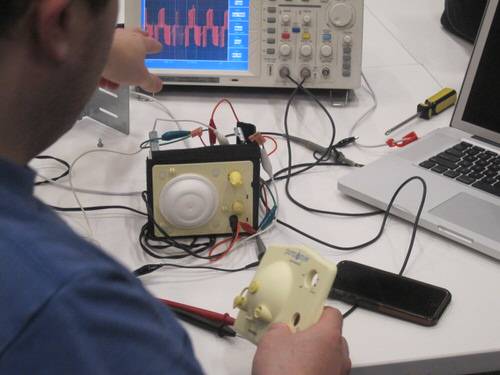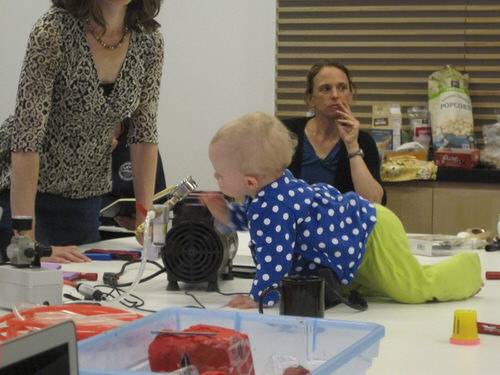Mothers may wonder why there’s no such thing as a smart breast pump yet—and rightly so. As applications and services continue to change the way we exercise, eat, and sleep, the breast pump technology that exists today remains similar to the kind my own mother might have used decades ago.
To help make breast pumping easier for mothers around the world, 150 participants, including mothers, healthcare workers, educators and engineers are partnering up at MIT for the “Make The Breast Pump Not Suck” hackathon on September 20-21.
“We think of breastfeeding as being a very natural thing, but the fact is, it can be really challenging,” Catherine D’Ignazio, hackathon organizer and research affiliate in the Civic Media group at MIT, told ReadWrite. “It takes education, and a huge commitment on the part of the mother and the family.”
Breastfeeding is important for the nutritional health and development of children, and the World Health Organization suggests breastfeeding children up to two years of age. But this natural act between a mother and her child can be quite difficult when relying on technologies like pumps, and is still largely stigmatized.
You might even feel uncomfortable reading about it right now.

Not all woman can breastfeed naturally—so the alternative is breast pumping. To collect the nutrients for their babies, women put suction cups on their breasts, and a loud, medical-like machine, pumps milk from the woman into bottles she can then feed to her child. The process right now is awkward, noisy, and hard to do on a regular basis, especially for women in developing countries where access to maternal care is often nonexistent.
In emerging countries where women are starting to enter the workforce, D’Ignazio said many women who go back to work after giving birth stop breastfeeding entirely. This can lead to later-in-life risks for allergies and obesity for the child, and the mother can be at an increased risk for different types of cancer and diabetes.
This weekend’s hackathon aims to address some of the issues around the difficulty, stigmatization, distribution, and engineering of current breast pumping technologies.
Making The Pumps Not Suck
The fall event is the second breast pumping hackathon hosted by the MIT Media Lab. In May, a group of about 20 people kicked off the first breast pump hackathon. Since then, interest has grown tremendously, and organizers have received over 500 detailed emails from women willing to share their experiences and concerns about breast pumping.
“Because there’s such an overwhelming outpouring of support from moms and people professionally in this field, we invited people to send us their ideas about breast pumps, and how they would improve it,” D’Ignazio said.

Some of the complaints from the current breast pumping experience include:
- Noise—the weird sucking sound the pumps make can be very distracting.
- Size—breast pumps need to be carried around in a large bag, as if mothers were lugging around a suitcase. “Why can’t breast pumps be the size of an iPhone?” D’Ignazio said.
- Comfort—to pump breast milk, women must be sitting upright, and almost leaning forward. Many women wrote to the organizers about their desire to lay down while pumping.
This data will be given to hackathon participants, in addition to the technologies provided by the MIT Media Lab, including Arduino boards, materials for wearable prototyping, and access to a 3D printer.
See also: History’s Female Programmers Will No Longer Be Forgotten
This event isn’t just about fixing the technologies, but also openly discussing an issue that affects women from all walks of life and yet does not seem to exist in the public consciousness.
D’Ignazio, a mother of three, said she didn’t learn about breast pumping until preparing for her first baby.
“Why aren’t we having more of these public conversations?” she said. “In the end, breastfeeding and pumping is such a huge health issue, and it’s a public health issue. So I guess the question is … why don’t we see more startup companies in that space?”
Organizers are hoping that this event geared towards improving the breast pumping machine and experience will inspire other people to work on the maternal health issue, and kickstart the conversation and production of innovative options new mothers require.
Images by MIT Media Lab.

















